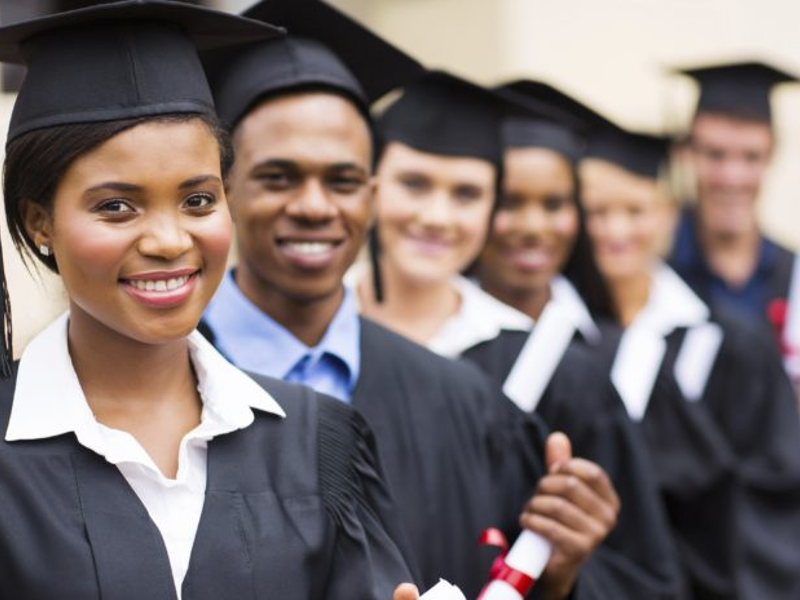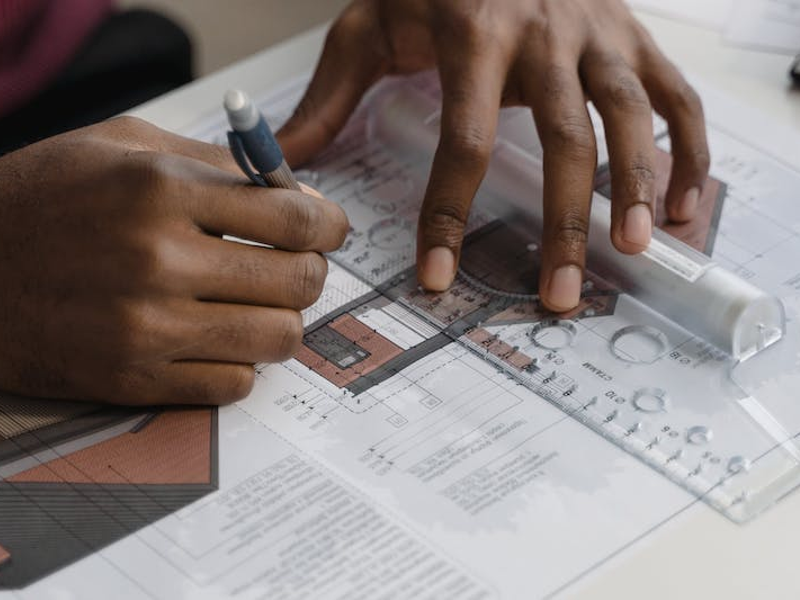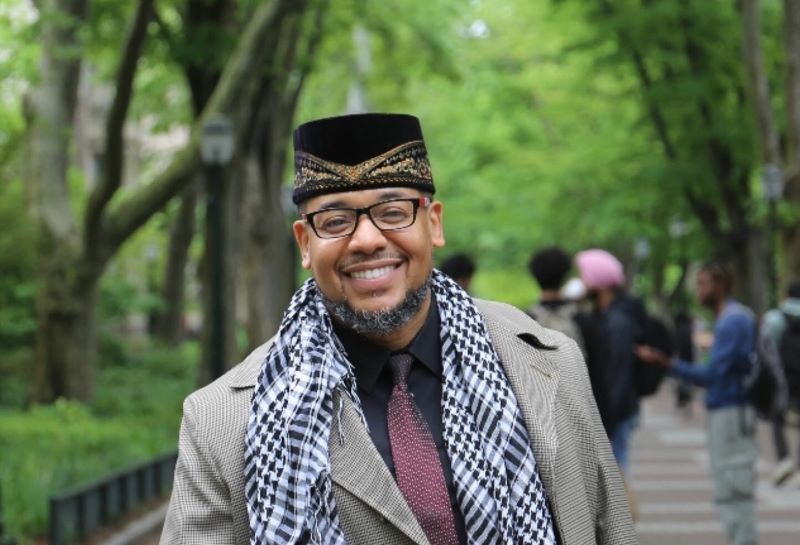Historically Black Colleges and Universities (HBCU) have been educational and social safe havens for black students since the mid 19th century. The term HBCU refers to any historically Black college or university, whose principal mission was the education of Black students and was established before 1964. From their beginning after the Civil War and now in the 21st century, HBCUs continue to play a significant role in the education of Black students.
The list of HBCU celebrated graduates from years ago and today is stunning: Supreme Court Justice Thurgood Marshall (Lincoln University); Dr. Martin Luther King, Jr. (Morehouse University); Langston Hughes (Lincoln University);,Dr. Marian Wright Edelman (Spelman College), Toni Morrison (Howard University); Nigeria’s First President Nnamdi Azikiwe (Lincoln University);
Jesse Jackson (North Carolina A&T); filmmaker Spike Lee (Morehouse University); Taraji P. Henson (Howard University) and the list continues. FunTimes surveyed prominent area HBCU graduates to get their first hand report on their experience at an HBCU. We asked, How did your HBCU experience impact you and how can HBCUs improve?
Ronell Adams, Cheyney University Graduate
“My experience at an HBCU has impacted the things I am currently doing, things I have already accomplished, goals I hope to achieve and the ways in which I interact in the community. I am currently working with HIV patients to achieve viral load suppression, housing and personal stability. I am also working on a research project to increase academic achievement in low-income communities. The HBCU community has impacted my decision to inspire, encourage and promote academic / career growth in African American communities by offering those same opportunities to me. HBCUs can become better by promoting alumni support and student engagement. Student engagement should be a requirement for graduation. Every student should be involved in at least one event throughout their college experience. ”
Carter Belmont, Hampton University graduate
“My experience has taught me to take what I learn and pass it on to other people. HBCU means to me a place where you can get specialized classes in terms of your math class still relating back to you as a Black person and your experience in the world. HBCUs can improve in their development department. HBCUs are underfunded so being purposeful and partnering with who they need to partner with is important so that we can get funding for private and public HBCUs. ”
Jeanette Bavwidinsi, Howard University graduate
“I would not be the woman I am today if it were not for my undergraduate experience. I learned to be proud of who I am, to challenge the system in whatever spaces I may find myself, to always fight for a seat at the table, to reach back and pull forward. While I learned many of those lessons at home, they were fortified and given life by the education and development I received at Howard. I also became a member of Delta Sigma Theta Sorority, Inc. – a historic powerhouse of a sorority whose members have paved the way for black women and women of color in every conceivable industry and space. After graduation, I decided to make civic participation, volunteerism, and community organizing my life’s work – working on political campaigns, volunteering in my community, and working for local government. I now find myself at the helm of the Mayor’s Office of Youth Engagement in Philadelphia, where I have the ultimate task of helping to prepare a generation of Philadelphians to become productive and compassionate members of society. The only reason I feel prepared to take on the gravity of this work is because of my time at Howard University. We are fortunate that we are living in a time where application to HBCU’s are on the rise! It is a beautiful thing to see. However, there is always room for improvement! I think a great place to start is continuing to engage alumni. The only way that HBCUs will continue to survive and most importantly flourish is if alumni give back – that could be through funding, resources, trainings, etc.
Jenea Robinson, Howard University graduate
“While attending Howard University, we were always reminded of the sacrifice others made before us that allowed us to have the opportunities we have today. Because of that, I make it my mission to also give back to my community. I want to make it easier for the next one. In order for any institution to survive it needs money. HBCUs can do a better job at instilling the importance of giving back to our beloved universities once we are out of college. I understand the many challenges with this. Unlike our Ivy League counterparts, HBCUS aren’t blessed with generational wealth. Often times, the students attending HBCUs are the first in their families to obtain a college diploma and we have many other financial obligations. I just don’t think that giving back is a priority for us but it should be.”
Britney Norman, Howard University graduate
“When I think of HBCUs the words that come to mind are community, African Diaspora, and black excellence. For me, attending Howard University was one of the best decisions I (with my mom’s forceful demands) made. I had the opportunity to meet lifelong friends while exploring my passions and purpose. It gave me access to meet and hear from historic greats like Maya Angelou, Angela Davis and Louis Farrakhan. Also, being a part of Howard’s legacy is unmatched. Today, HBCUs could become better by strengthening their relationships with the alumni community. It’s no secret that our institutions are failing because of lack of funding. Creating new ways to engage and add value beyond the degrees would make alumni more willing to give back.”
Rennett Edney Johnson, Howard University graduate
“I attended Howard University and graduated with a bachelor’s degree in psychology in 1974. I came from Darby Township on the outskirts of Philadelphia where my education, social, church, culture experiences and family life were predominately Black. Me going to an HBCU was just moving forward from my existing African American environment. I came from a household where everything was culturally focused. All the colleges I applied to were HBCU’s. My brother before me was a student at Howard. Interestingly, Howard University was a culture shock to me, because of its large size and seeing so many extremely intelligent and positive Blacks from all over amazed me. I think the HBCU’s could fare better if the alumni were more vested in giving back. We are needed to continue to help our HBCU’s move forward and have a stronger foundation. Being involved in activities and fundraising is part of the importance of alumni. Alumni must be more about the business of giving our dollars to make sure these schools continue so that the HBCU’s will be more financially grounded.”

Rhonda Fleming Scarborough, Cheyney University
“My educational experience at Cheyney University (BA in Sociology and Secondary Education in History) and Lincoln University (attended 1 year post graduate) was nurturing, historically informative, esteemly enhancing and of course overwhelmingly educational. To have tenured professors as role models and be challenged to meet the expectations of difficult course assignments was enjoyable.I found it to be familial and gave me a sense of community living while living on campus. It encouraged me to focus on employment that provided opportunities to service the African American community. More active ongoing financial support from alumni is needed. Also, needed are assisting with recruitment of high school students and attending alumni focused activities and events.”
Marilyn Kai Jewett, Howard University
“I chose to attend an HBCU because I was tired of the brainwashed education I had received in Philadelphia public schools and felt a white college would continue the same pattern. I was one of the Black students who protested at the school district administration building in 1967 for Black History and humane treatment. In 1968, students at Howard took over the administration building because they were fed up with the bourgeois administration that was content with Howard being a negro university. Howard students protested for the same things we wanted in Philly. Black Power was the order of the day, and they wanted Howard to reflect its Blackness and support the community. In 1970, Ebony Magazine did a cover story on Howard and the results of the rebellion. Although I was being recruited by other HBCUs, after reading that article, I knew Howard was the place for me! I applied, was accepted and left for D.C. in August 1971, three months after turning 17. Howard students then and now are not afraid to stand up for what’s right. We too, occupied the A Building in 1974 in protest of rising tuition and fees. Originally a business management major, I switched to broadcast management/radio in 1972 when the School of Communications opened, led by Dean Tony Brown, host/producer of PBS’s Tony Brown’s Journal. He taught us the truth– that objectivity in journalism is a systemic sham perpetuated by the racist white media. Unlike at white universities, we were exposed to 360 degrees of Black culture. Our instructors nurtured us like family and urged us to return to our communities as leaders to make things better for our people. That’s what I strive to do every day of my life. Howard has always stood for excellence and its grads have been leaders in their professions since its inception in 1867. I am proud to be a Bison! I could have gone anywhere, but I chose Howard and Howard chose me. HBCU alums need to be financially supportive of their alma maters when they can, and recruit Black students to continue the HBCU legacy. ”
Wanda Davis, Bennett College graduate,
My mother was killed two years before I completed school. I came back and met Dr. Gloria Randall Scott who came in as our new president. I told her I lost my mother and I didn’t know how I would finish Bennett. She asked if I knew Councilwoman Marian Tasco, a Bennett alum on the board of trustees and very active in the Delaware Valley alumni chapter. Marian Tasco was also credited with having helped select the last three or four Bennett College’s former presidents. Being at an HBCU taught you about relationships early. When I eventually graduated and got back to Philadelphia, I didn’t know Councilwoman Tasco at the time but met her at a breakfast. I told her that it was finally good to put a name to a face because I didn’t know her when I was in Philly but when I got back she referred me to and helped me secure my first job in Philly in 2000.When I told Gloria Scott I lost my mother but was going to find a way to get through school, she said she’d have to do something for me and she did. She recommended me to a scholarship and I flew to a different state each week for my internship. Through work-study I raised money to graduate with my degree from Bennett. HBCUs could be better through alumni giving and support of the community in which they serve, which starts with the African American community. In addition to alumni giving and support, continuing education about HBCUs is key. They should put out publications on HBCU graduates that are doing things and introduce HBCUs to elementary, middle Wanda Davis, Dr. Darryl Ford and and high school students.

William P. Ramsey, Wilberforce University grad
“Having attended and graduated from Wilberforce University with a Bachelors of Arts Degree in Mass Media Communications, I have been greatly influenced to pursue a career as an educator. Upon graduation, I served as an advocate for former out-of-school youth overseeing student life activities such as community service projects for an alternative education program within the City of Philadelphia. I encouraged my students daily to be the best version of themselves they, could be in life. I related to them that I was born, in the neighborhood, not of the neighborhood, so they too can achieve higher levels of academia and pursue successful endeavors in their careers, even in their young adulthood. The HBCU experience greatly impacted my life socially and scholastically. I have lived among and attended schools predominantly with African-Americans throughout my life. However seeing first-hand my cultural brothers and sisters united from various backgrounds, bud into their careers and adulthood based upon their choices and achievements, not necessarily upon the status quo, was indeed refreshing. I appreciated the family-oriented atmosphere while attending an HBCU.
The upper class students and professors embraced me as a freshman so that I would not only survive my first year of college, but also thrive academically and socially, often showing tough love, not foreign to what I experienced at home throughout the early formative years of my life. Because there were academic institutions founded, owned and operated for and by the same peopleprevented from pursuing basic skills such as reading, writing and arithmetic, I had no choice but to continue that legacy and share the blessing onward. HBCU’s as a whole can expand their horizons with collaborative efforts. The only two historically Black universities in the state of Ohio, Wilberforce University and Central State University are located directly across the road from one another. While a student at Wilberforce University, I not only formed relationships with students from Central State University, I took a course there, helped establish a campus organization that was originally founded on the campus of Wilberforce University and participated in community festivals alongside their student body.Coming this Fall 2019, information technology, library, housing and food services, will merge to provide opportunities to benefit students. More collaborative efforts regardless of regional and even ethnic boundaries would be ideal to further the importance of education to African-Americans, other ethnic minorities and all people that once students graduate and pursue careers, local and global perspectives can be experienced and appreciated.”













